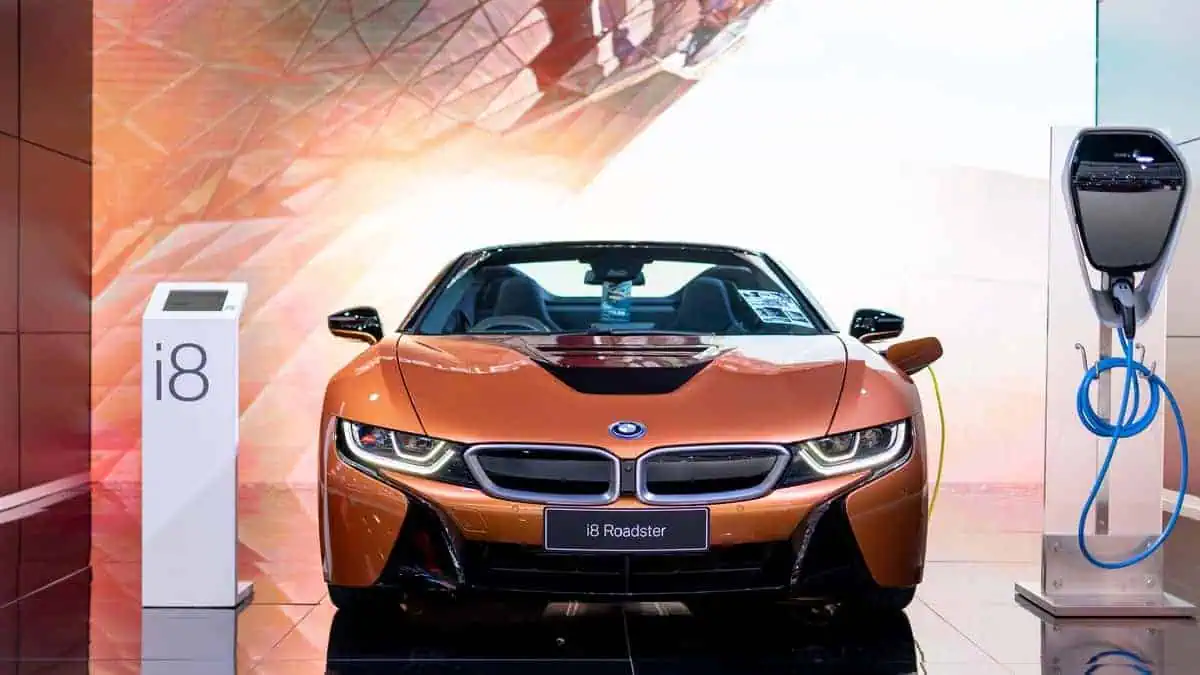German automaker BMW announced a $1.7 billion investment at Spartanburg plant, to produce electric vehicles and batteries, as per CNBC.
The $1.7 billion investment is allocated to two projects. The $1 billion will be used to gear up the company’s current US manufacturing facility in South Carolina to produce electric vehicles.
The remaining $700 million will be allocated to construct a new high-voltage battery assembly factory in the nearby town of Woodruff, South Carolina.
CBS NEWS reported that the investment in the factory in Greer, South Carolina, USA, would open an additional unspecified number of jobs. Meanwhile, the new battery plant will generate 300 jobs in a few years.
BMW to produce at least 6 BEVs in USA by 2030
Furthermore, BMW will produce at least six fully electric vehicles in the United States by 2030.
Notably, the Spartanburg plant presently manufactures li-ion battery modules for the two plug-in hybrid electric vehicles in addition to BMW “X” SUVs. Later this year, the new hybrid-electric BMW XM production is anticipated to start.
“For decades, Plant Spartanburg has been a cornerstone of the global success of the BMW Group. The home of the BMW X models that are so popular all over the world. Going forward, it will also be a major driver for our electrification strategy, and we will produce at least six fully electric BMW X models here by 2030. That means: The ‘Home of the X’ is also becoming the ‘Home of the Battery Electric Vehicle,'” BMW Chair Oliver Zipse said on Wednesday.
“In addition, we can showcase BMW Group’s ‘local for local’ principle: Our newly developed sixth generation battery cells, which were specifically designed for the next generation electric vehicles, will be sourced here in South Carolina – where X goes electric.”
According to BMQ Group, the energy density will increase by over 20%, charging times will increase by up to 30%, and the range will expand by up to 30% with the new battery structure. Moreover, using some secondary lithium, cobalt, and nickel materials in cell manufacture, along with renewable energy sources, would also reduce CO2 emissions from cell production by up to 60%.
BMW acquired Automotive Energy Supply Corporation (AESC)
On Wednesday, BMW also disclosed a deal to acquire battery cells from Chinese renewable energy group Envision’s Automotive Energy Supply Corporation (AESC). The deal aims to build a new battery cell factory in South Carolina to supply the BMW plants.
The Envision AESC factory is anticipated to have a 30 gigawatt-hour yearly output capacity. The company claims that this is consistent with the intentions of other automakers and battery suppliers for US plants.
Furthermore, the new factory is anticipated to be a multibillion-dollar investment, according to an Envision AESC spokeswoman, who declined to give a specific figure. She also indicated that the final site of the factory would be declared by the year’s end.
In retrospect, the company revealed in April that it would invest $2 billion in Kentucky to erect a second US plant. It is worth noting that Nissan Motor is being supplied by its first Tennessee-based facility.
Meanwhile, the company’s other significant client is BMW in the US, and talks are ongoing with “a number of global automotive manufacturers and partners,” according to the spokeswoman.
On the other hand, BMW has previously confirmed the construction of four new battery cell plants in China and Europe. These plants are aimed to accommodate the company’s demand for next-gen battery cells.
BMW investment to drive US Manufacturing
“BMW’s sustained and impactful presence in South Carolina demonstrates the power of partnership and shared commitment to our state’s automotive industry success,” said Governor McMaster.
“With today’s announcement of a $1 billion expansion to Plant Spartanburg for manufacturing electric vehicles as well as $700 million for a new plant in Woodruff to assemble battery units, the road to the future is here. And I applaud BMW on helping lead the way.”
There have already been multibillion-dollar investments in the US for EV and battery production as the state intensifies its effort to promote domestic manufacturing.
The Inflation Reduction Act and the United States-Mexico-Canada Agreement (previously titled North American Free Trade Agreement) included tighter sourcing regulations that automakers must comply with.
For instance, the newly passed Inflation Reduction Act requires that crucial battery materials are sourced domestically or from countries with free trade agreements to qualify for the EV tax credits for up to $7,500.
The companies would be eligible for federal tax incentives and be exempt from tariffs as they build new battery plants in the US. Additionally, since it would not be importing vital components for battery production from foreign countries, the state would generate bigger revenue.





